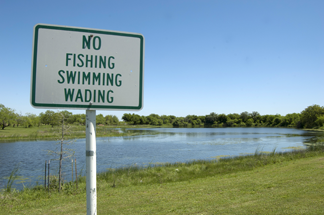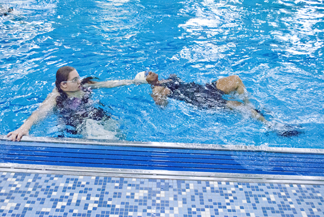By Karen Gavis/se news editor
Mandatory lab time requirements on SE Campus and new districtwide prerequisites are impacting math students.
To help SE students become more successful mathematically, Pre-Algebra and Intermediate Algebra students are required to spend one hour per week in the math lab. The students put their ID number into computers upon entering and exiting the lab, which logs their time.
Some students are not thrilled about the time intrusion.
SE student Marquita Wilson said she thinks the rule helps because she has seen her grades improve. At the same time, she doesn’t think it should be required because sometimes there are schedule conflicts.
“I mean, I am forced to find time to get it in,” she said. “But I can say it has helped. It is just a bit of an inconvenience to be required to have to do something.”
Wilson is in Brunilda Santiago’s Beginning Algebra class. Although it is not required by school policy for Math 0304 students to log an hour per week in the math lab, Santiago said she made it a requirement for her class because of the statistics she has seen.
Studies show college students are more successful if they can connect with someone at the college, Santiago said.
“And that’s another thing about the math lab,” she said. “It gives them support. They need that interaction.”
Santiago said she will not be strict about the required math lab hour but wanted students to have the opportunity to participate in the math lab and see that help is there for them.
One SE student, who is not in Santiago’s class and asked that his name not be used, found a loophole in the one-hour math lab rule. He said the lab has so many people that no one pays attention.
“You can scan in and leave and then come back and scan out,” he said.
The SE student said that once after scanning in, he walked out and stood in the hallway on his phone the whole time. Another time, he scanned in, went to class and then came back.
“Technically, that is unacceptable due to policy,” SE instructional associate Bobby Childress said. “The reality is, no, we cannot be constant watchdogs.”
Childress said the math lab has about 2,500 students come through each week, and workers try to encourage everyone to make positive use of their time. In the past, workers have spoken to students observed breaking the rules.
“We are not trying to be mean about it,” he said.
Although the math lab gets busy at times, Childress said lab associates are glad because that means they can help more students succeed.
A few years ago when Childress began working on SE, about 7,000-8,000 students used the math lab per semester. Now, it is about 10,000 students per month. The math lab has about 110 computers, and some days, 80 or 90 of those may be occupied.
“We have yet to be at 100 percent capacity, but we have certainly come close,” he said.
Students are encouraged to stop by the math lab even if it is just for one or two questions, Childress said.
“Every single one of us took this job to want to help,” he said. “That’s what we are here for. That’s what we enjoy doing.”
After beginning the hour lab requirement, Childress said the Intermediate Algebra success rate increased by 10 percent last fall.
Beginning Algebra students are not currently required by policy to log the math lab hour, Childress said, because “we haven’t got there yet.”
“I don’t know when, but it’s coming,” he said.
Chemistry prerequisites are also coming.
Beginning this fall, Fundamentals of Chemistry I and II and Essentials of General and Biological Chemistry will require a prerequisite course of Beginning Algebra or higher. A satisfactory score on the TCC math placement test would also be sufficient. Additionally, General Chemistry I and II will require a prerequisite course of Functional Approach to College Algebra or higher, unless a satisfactory score on the TCC math placement test is obtained.
SE dean of mathematics and science Thomas Awtry said the changes will be districtwide. Associate professor of chemistry David Dollar conducted a study last summer to determine if a prerequisite course was needed to help students become more successful in chemistry.
“I didn’t want to suggest a prerequisite just based on what I thought,” Dollar said. “I wanted to be sure of what the statistics said and what the data said.”
Dollar said the study took about three months.
“Based on my study, I had suggested another prerequisite, but the state came through and said, ‘No, it’s going to be 1314 [for Chemistry 1411],’” he said. “I won’t be surprised if we don’t see more of that coming from the state.”
One of the supporting factors in Dollar’s conclusion was that each of the 10 largest community colleges in Texas except TCC had already added math prerequisites to their chemistry courses.
Dollar said once students have a solid math background, they will be more successful “and be successful the first time they take the course.”




















